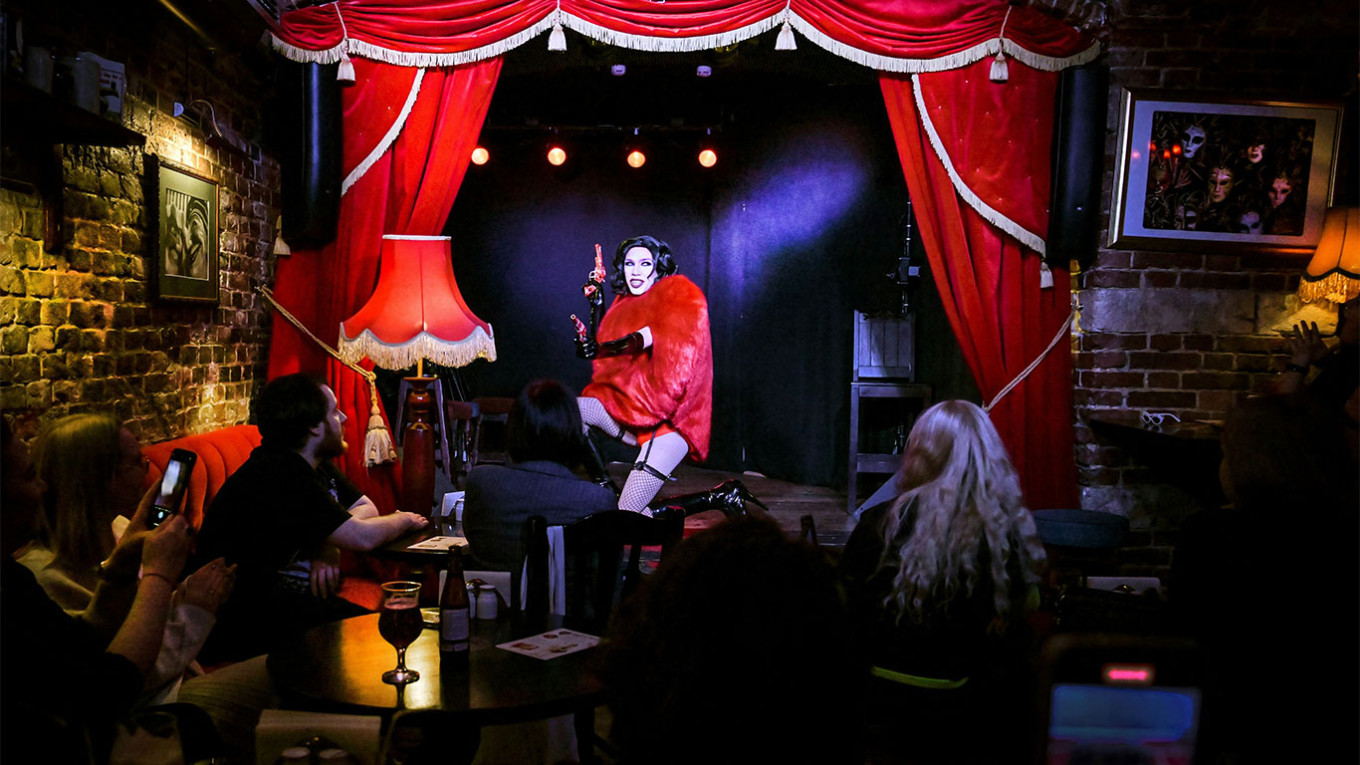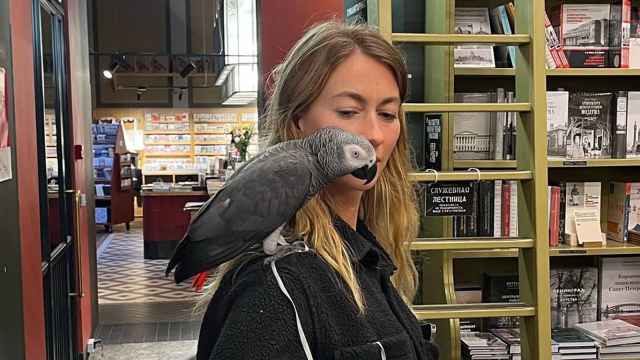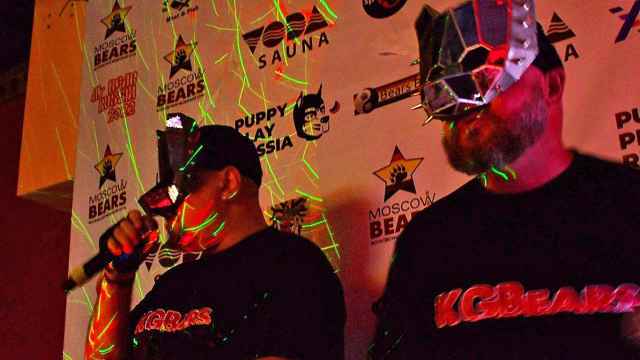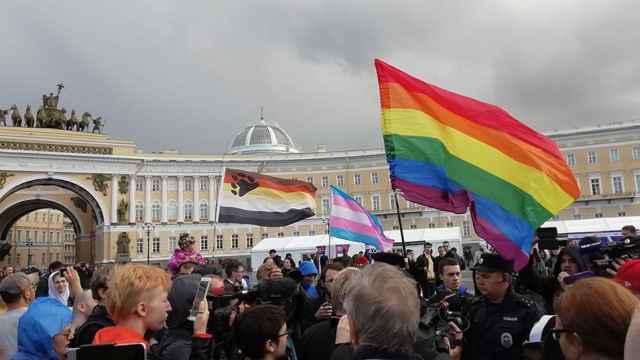ST. PETERSBURG — A pair of tall drag queens is performing on a stage, cracking jokes and interacting with the only three guests who have come to this gay bar on a Thursday night.
The entrance to this renowned venue is marked only by a nondescript metal door in a dimly lit courtyard.
“We could hardly find it,” complains one of the guests, a woman with a short-cropped haircut who was visiting from the Moscow region.
Since the Russian Supreme Court banned the “international LGBT movement” in late November, an atmosphere of unease has settled over St. Petersburg’s gay nightlife scene and pushed it further into the shadows.
Ivan, 43, the bar’s owner, said he has seen a roughly 50% drop in customers. He asked not to publicize his bar’s name out of fear of negative reprisals for his business.
“Of course, people are afraid,” he said. “We are also afraid but we keep on working.”
Many people are scared after police raided several Moscow LGBT clubs a day after the ban was announced.
While the raids were apparently unrelated to the Supreme Court’s decision, their timing has nonetheless had a chilling effect on the Russian LGBT community.
The new ban labels the “LGBT international movement” as an “extremist” organization, a designation that entails punishment for supporting or participating in it with lengthy prison terms — although it fails to clarify what specific group it refers to.
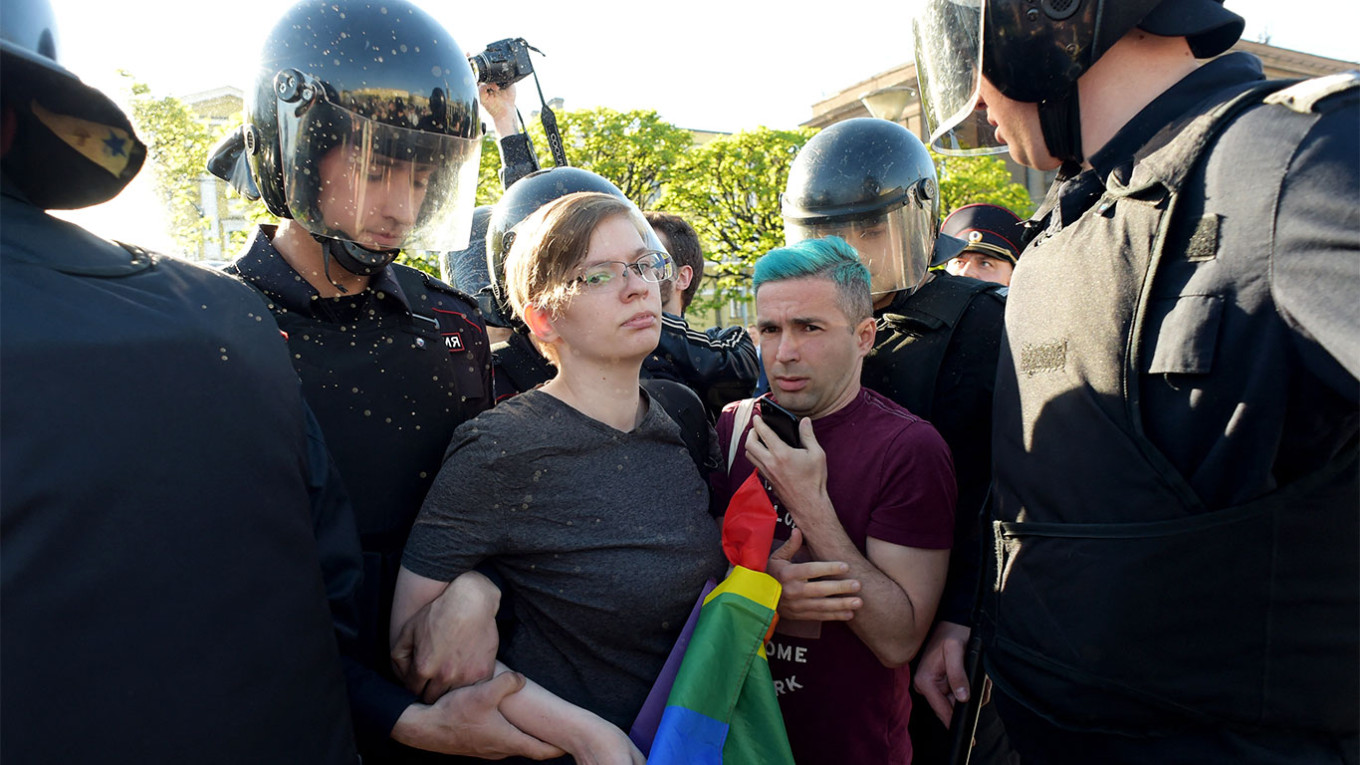
Due to the vague nature of Russia’s anti-extremist legislation, the owners of gay clubs have scrambled to assess the risks their businesses now face.
“It is unclear how the law will be enforced,” said lawyer Ksenya Mikhailova.
She said that while she believes gay bars and clubs do not automatically fall under the court’s label, “law enforcement agencies will try to use anti-extremism legislation to put pressure” on these venues.
Central Station, another famous gay club, announced its shutdown hours after the Supreme Court’s announcement, saying its landlord refused to extend its rental contract due to the potential implications of the new ban.
Other bars have continued working but removed all references to LGBT lifestyles and symbols in decorations and signs as well as on social media.
It wasn't always this way, said Ivan, who opened his bar over a decade ago during a brief period of relative liberalization toward the LGBT community in Russia.
Homosexual acts were decriminalized in 1991, and the country removed homosexuality from its list of mental illnesses in 1999.
Back then, Ivan recalled, his bar would regularly be featured in local lifestyle magazines. When the first law against LGBT propaganda toward minors was enforced in 2013, this media coverage ceased.
Since then, the bar has relied on word of mouth to draw customers. “Advertising became dangerous,” Ivan said.
The bar’s website now avoids any mention of the LGBT community, presenting it as a “private theater bar for creative people.”
When the country banned “LGBT propaganda” toward any age group last December, threatening legal entities with hefty fines, Ivan decided to remove the rainbow colors decorating the bar’s ceiling.
After the “extremist” ban was announced, he removed a poster featuring the portraits of drag artists. Now a screen showing pictures of past drag shows hanging over the bar is the only element left hinting at the LGBT theme.
“I am thinking of getting that one removed as well,” said Ivan.
The bar owner said he is used to rude behavior from police officers during routine checks. Now, he is concerned that the new ban could escalate into arbitrary crackdowns.
“All the club owners are worried that some abuse could start,” he says.
Ledenez, another gay club located in a basement in the city center, has also been stripped of LGBT-related imagery.
Its main room is empty on a recent Thursday night. In a secondary room behind a curtain, about a dozen guests have gathered for a drag show.
“We are probably taking a risk,” says Ivan, 30, who identifies as bisexual. He is attending the show with his gay friend Vladimir, 28.
While there are no longer any “provocative [LGBT] slogans or symbols” in the bar, the young men said some of their friends are too afraid to come out of fear of possible police raids.
The new ban did not come as a shock to them. They said they see it as just the last step of a long state effort to remove LGBT people from the public space.
“Now you think twice before coming out. It is becoming a private thing and only private,” said Vladimir. “It is better not to talk about it to whoever; it is not safe.”
Bars have been adapting their shows to the increasingly restrictive legislation, and artists are transitioning from the drag genre to less “risky” formats like celebrity parodies.
Self-censorship in on-stage dialogues has also become common.
“We are not allowed to bring up LGBT topics,” says Yevgeny, 31, a local drag queen known as Jennifer Vog.
“Before [the LGBT movement ban], it was okay to discuss with someone how he/she came to it [queer identity], how he/she accepted it, sexual preferences and so on,” said Yevgeny.
Despite the new restrictions, Yevgeny said he doesn’t feel impaired by the latest ban, which he feels is mainly directed against people who openly advocate for homosexual rights.
“There’s no need to shout about certain things,” he said, criticizing LGBT activists. “People need to adapt to this, to fit in, and continue working.”
Maria, 39, a lesbian theater director whose work focuses on LGBT topics, is rehearsing her new play, based on Anton Chekhov's classical play “The Three Sisters,” on the stage of a local gay bar.
Unlike the original, her version revolves around one of the sisters falling in love with a married woman.
Maria has incorporated metaphors in her shows to avoid any legal liability.
“After the implementation of that law [last year’s LGBT propaganda law], we stopped calling things by their names,” explains Maria, who asked to have her name changed due to safety concerns. “But lesbians and gays who come to our shows understand anyway.”
To secure hosting theaters, Maria omits any mention of homosexuality in the show’s description.
“If we write on the poster that the show is about the love between two women, no theater would ever take it,” she said.
In case someone asks her why there are only women in the show, she is used to replying that there has been a shortage of men due to the ongoing war in Ukraine.
Maria said she is waiting to see how the new LGBT ban will be enforced, but that she thinks it is unlikely to significantly change her work: she sees it as just an addition to Russia’s already repressive environment.
The LGBT actors playing in her shows “live already within so many restrictions,” she explains. “This is just one more of them.”
A Message from The Moscow Times:
Dear readers,
We are facing unprecedented challenges. Russia's Prosecutor General's Office has designated The Moscow Times as an "undesirable" organization, criminalizing our work and putting our staff at risk of prosecution. This follows our earlier unjust labeling as a "foreign agent."
These actions are direct attempts to silence independent journalism in Russia. The authorities claim our work "discredits the decisions of the Russian leadership." We see things differently: we strive to provide accurate, unbiased reporting on Russia.
We, the journalists of The Moscow Times, refuse to be silenced. But to continue our work, we need your help.
Your support, no matter how small, makes a world of difference. If you can, please support us monthly starting from just $2. It's quick to set up, and every contribution makes a significant impact.
By supporting The Moscow Times, you're defending open, independent journalism in the face of repression. Thank you for standing with us.
Remind me later.


